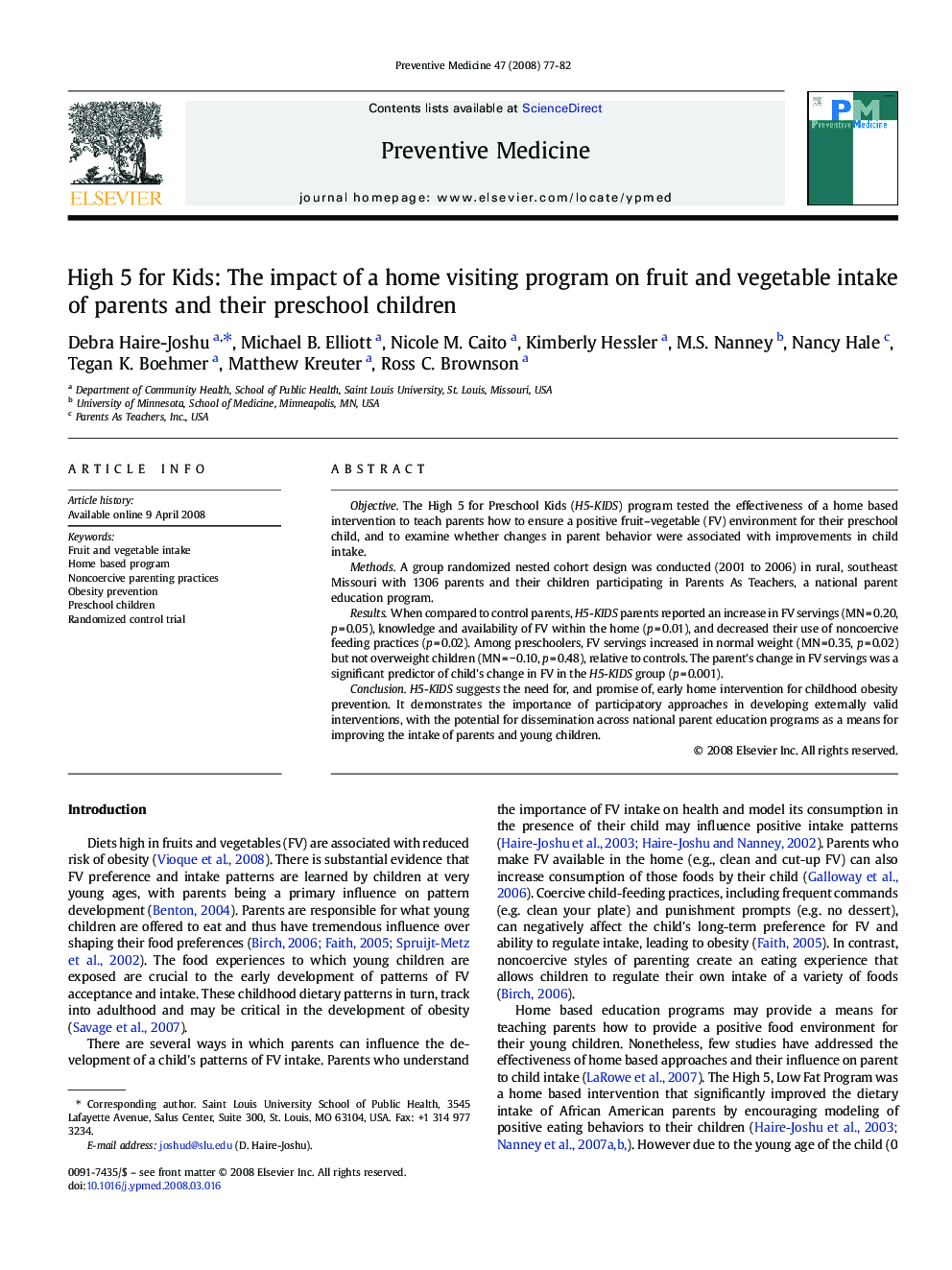| Article ID | Journal | Published Year | Pages | File Type |
|---|---|---|---|---|
| 3101753 | Preventive Medicine | 2008 | 6 Pages |
ObjectiveThe High 5 for Preschool Kids (H5-KIDS) program tested the effectiveness of a home based intervention to teach parents how to ensure a positive fruit–vegetable (FV) environment for their preschool child, and to examine whether changes in parent behavior were associated with improvements in child intake.MethodsA group randomized nested cohort design was conducted (2001 to 2006) in rural, southeast Missouri with 1306 parents and their children participating in Parents As Teachers, a national parent education program.ResultsWhen compared to control parents, H5-KIDS parents reported an increase in FV servings (MN = 0.20, p = 0.05), knowledge and availability of FV within the home (p = 0.01), and decreased their use of noncoercive feeding practices (p = 0.02). Among preschoolers, FV servings increased in normal weight (MN = 0.35, p = 0.02) but not overweight children (MN = − 0.10, p = 0.48), relative to controls. The parent's change in FV servings was a significant predictor of child's change in FV in the H5-KIDS group (p = 0.001).ConclusionH5-KIDS suggests the need for, and promise of, early home intervention for childhood obesity prevention. It demonstrates the importance of participatory approaches in developing externally valid interventions, with the potential for dissemination across national parent education programs as a means for improving the intake of parents and young children.
